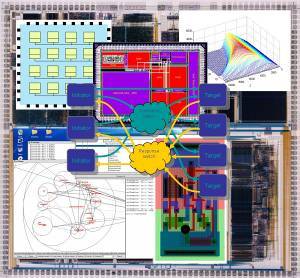
Designing Asynchronous Sequential Circuits for Random Pattern Testability
O. A. Petlin, S. B. Furber, A. M. Romankevich, V. V. Groll
Abstract
A resurgence of interest in asynchronous VLSI circuits is occurring because of their potential for low power consumption, design flexibility and the absence of the clock skew problem. In this paper, an approach to the design of asynchronous sequential circuits for random pattern testability based on the micropipeline design style is described. The test procedure for such asynchronous sequential circuits provides for the separate testing of the combinational logic block and the memory elements. The total number of random test patterns required to detect all the stuck-at faults in the data processing blocks and control blocks is determined by the total number of tests for the combinational logic block. A case study of a register destination decoder designed for random pattern testability is presented to demonstrate the practicability of the proposed design approach.
PDF (96K).

